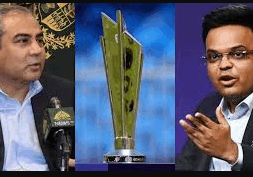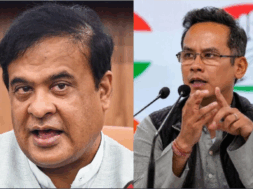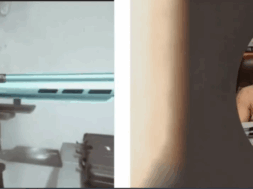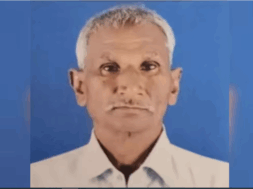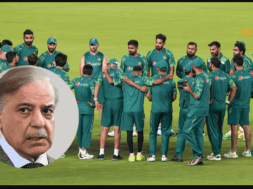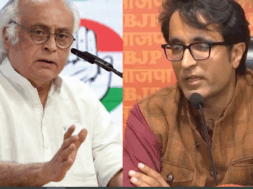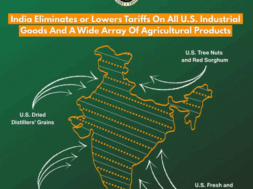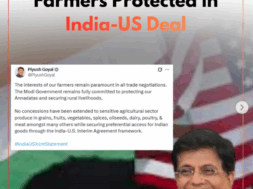
Manas Dasgupta
NEW DELHI, June 25: The war of words between the Government of India and Twitter India took an ugly turn on Friday with the microblogging social platform temporarily blocking the account of none other than the Information Technology minister himself for alleged violation of a copyright act of the United States.
Amid an intensified public spat between Twitter India and the government over the new IT Rules, Union Minister for Electronics and Information Technology Ravi Shankar Prasad informed the country that Twitter had denied him access to his account for almost an hour alleging a violation of the Digital Millennium Copyright Act of the USA. He said his account was blocked over complaints that he “violated” copyright law by posting clips of himself from television debates.
“Twitter denied access to my account for almost an hour on the alleged ground that there was a violation of the Digital Millennium Copyright Act of the USA and subsequently they allowed me to access the account,” Prasad said in a series of tweets.
And later it was revealed that not the minister alone, others also who had objected to Twitter India violating the Indian laws had been subjected to blocking of their accounts. Soon after Prasad’s outburst, several Twitter users including senior Congress leader Shashi Tharoor, who is the Chairman of the Parliamentary Standing Committee on Information Technology, said they too had faced similar action.
The Parliamentary committee under Tharoor had recently summoned the Twitter India representatives and had admonished them for not following the law of the land in letter and spirit. Tharoor also said his parliamentary committee would seek an explanation from Twitter for blocking Prasad and his account.
“It is apparent that my statements calling out the high handedness and arbitrary actions of Twitter, particularly sharing the clips of my interviews to TV channels and its powerful impact, have clearly ruffled its feathers,” Prasad added.
In a screenshot shared by the Union minister, Twitter informed that his account has been locked following a complaint Digital Millennium Copyright Act Notice for content posted on his account. Following the message, Twitter allowed him access to the account.
Confirming the incident, the Twitter spokesperson said, “We can confirm that the Honourable Minister’s account access was temporarily restricted due to a DMCA notice only and the referenced tweet has been withheld. Per our copyright policy, we respond to valid copyright complaints sent to us by a copyright owner or their authorized representatives.”
But while granting Prasad access to his account, Twitter, in another message, “warned” that his account would be locked again and potentially suspended if any additional notices are received against it. “In order to avoid this, do not post additional materials in violation of our Copyright Policy and immediately remove any material from your account for which you are not authorised to post,” it added.
Prasad’s new run-in with Twitter comes amid the platform’s months-long clash with the BJP-led government at the centre over issues ranging from requests to take down tweets supporting the farmers’ protest, discrediting posts by leaders of the BJP and more recently new regulation.
The new rules for social networking websites – which include appointing India-based compliance executives and other conditions – have led to a protracted feud, raising concerns that Twitter may no longer enjoy protection against user-generated content.
Slamming the move, Prasad said, “Twitter’s actions were in gross violation of Rule 4(8) of the Information Technology (Intermediary Guidelines and Digital Media Ethics Code) Rules 2021 where they failed to provide me any prior notice before denying me access to my own account.”
“Further, it is now apparent as to why Twitter is refusing to comply with the Intermediary Guidelines because if Twitter does comply, it would be unable to arbitrarily deny access to an individual’s account which does not suit their agenda,” Prasad wrote.
Insisting that he has not committed any copyright violation of any sort, Prasad said, “…in the past several years, no television channel or any anchor has made any complaints about copyright infringements with regard to these news clips of my interviews shared on social media.”
“Twitter’s actions indicate that they are not the harbinger of free speech that they claim to be but are only interested in running their own agenda, with the threat that if you do not tow the line they draw, they will arbitrarily remove you from their platform,” the minister said.
“The issue that further needs to be deliberated in this context, is whether India shall be guided by the copyright laws of the USA or its own copyright laws? Can a multinational platform like Twitter which proclaims itself as the flag-bearer of free speech invoke the American laws in India to curtail free speech of a senior minister of Government of India?” Prasad asked.
“No matter what any platform does they will have to abide by the new IT Rules fully and there shall be no compromise on that,” he added.
He added that Twitter’s actions “indicate that they are not the harbinger of free speech that they claim to be, but are only interested in running their own agenda, with the threat that if you do not tow the line they draw, they will arbitrarily remove you from their platform.”
Prasad, however, maintained that no matter what a platform does, “they are to abide by the new IT Rules fully with no scope for a compromise.”
The US Digital Millennium Copyright Act of 1998 creates a “safe harbour” (or exemption) for online service providers, exempting them from manually vetting or automatically filtering out copyright infringement. This places the burden on copyright holders to request the removal of violations. The law criminalises production and dissemination of technology, devices, or services intended to circumvent measures that control access to copyrighted works.
Last week, Ravi Shankar Prasad had said Twitter had “deliberately chosen” not to comply with the new intermediary guidelines that Indian government has framed despite being given “multiple opportunities”. His remarks came after Ministry officials suggested that Twitter India no longer enjoyed legal protection.
He also criticised Twitter for what he called its “arbitrariness in fighting fake news” and “its inconsistency in fighting misinformation”.
The minister further warned that “if any foreign entity believes that they can portray itself as the flag bearer of free speech in India to excuse itself from complying with the laws of the land, such attempts are misplaced.”
Sources in the Ministry had pointed out that Twitter had failed to appoint executives in the roles of resident grievance officer, nodal officer and chief compliance officer as per norms of the government.
Section 79 the Information Technology (IT) Act says any intermediary shall not be held legally or otherwise liable for any third party information, data, or communication link made available or hosted on its platform. This protection, the Act says, shall be applicable if the said intermediary does not in any way, initiate the transmission of the message in question, select the receiver of the transmitted message and does not modify any information contained in the transmission.
Guidelines issued in February required all significant social media intermediaries to designate Indian resident executives as resident grievance officer, nodal contact person and chief compliance officer by May 26.
And on May 26, the Ministry wrote to these intermediaries, asking them to furnish details of all appointments made as soon as possible. Over the next week, all major social media intermediaries complied in toto, except Twitter India.
